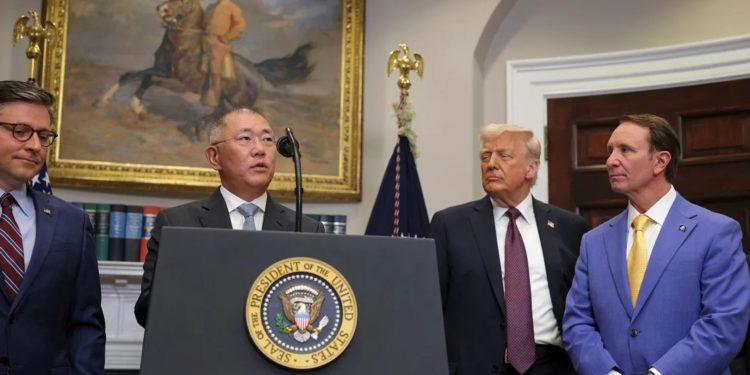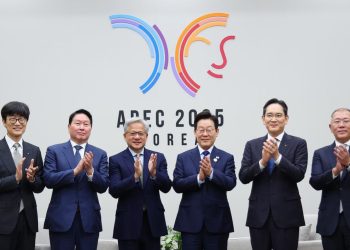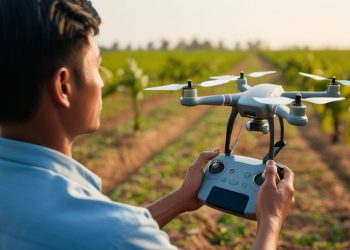Hyundai has unveiled a historic $21 billion investment in the U.S. to expand its manufacturing footprint and reduce exposure to possible tariffs under a future Trump administration. The company will allocate $6 billion toward autonomous driving, robotics, artificial intelligence, and advanced air mobility collaborations. Meanwhile, $9 billion will be invested by 2028 to boost U.S. production capacity to 1.2 million vehicles and generate 14,000 full-time jobs.
Hyundai is set to establish its first U.S. steel plant with a $5.8 billion investment in Louisiana. The facility will manufacture over 2.7 million metric tons of steel yearly, supplying Hyundai’s vehicle production sites in Alabama and Georgia. This project is expected to generate more than 1,400 jobs.
Additionally, Hyundai is set to hold an opening ceremony for its new $7.59 billion car and battery plant in Georgia, which will have a production capacity of 300,000 vehicles once fully operational.
Speaking at the White House, Trump emphasized the importance of Hyundai’s investment, stating that “money is pouring in” and that tariffs are proving to be effective. He has repeatedly warned of new trade measures, including potential reciprocal tariffs on South Korea and other countries with large trade surpluses. Trump has reinstated 25% tariffs on steel and aluminum imports and extended duties to metal-based products.
Hyundai Chairman Euisun Chung highlighted that this is the company’s largest U.S. investment. He recalled that discussions about expanding Hyundai’s manufacturing footprint in the U.S. began during his meeting with Trump in Seoul in 2019. The move aligns with the company’s long-term strategy to increase production in America and reduce reliance on overseas supply chains.
The announcement comes as other global corporations ramp up U.S. investments amid growing trade uncertainties. Taiwan Semiconductor Manufacturing Company and Japan’s SoftBank have also made commitments to expand operations in the U.S.
Hyundai’s decision is part of a broader industry trend as automakers seek to navigate shifting trade policies by increasing local production. Hyundai Motor CEO José Muñoz previously stated that boosting U.S. manufacturing is the best way to manage tariff challenges. Meanwhile, companies like General Motors continue to lobby against steep import duties, warning that unpredictable trade policies could impact future investments.
Louisiana Governor Jeff Landry visited South Korea in October, where he met with Hyundai executives to discuss the investment plans. As part of its expansion strategy, the South Korean automaker also committed to purchasing $3 billion worth of liquefied natural gas from the U.S. Hyundai previously announced in 2022 that it would invest around $10 billion in the U.S. by 2025, aligning with its broader goal of strengthening its manufacturing presence in the country.
While companies often unveil large investments alongside new U.S. presidents, the success of such projects has been mixed. In 2017, Trump and Foxconn announced a $10 billion electronics plant in Wisconsin, promising 13,000 jobs. However, the project was scaled down, with Foxconn later revising its investment to $672 million, creating fewer than 1,500 jobs. This history raises questions about the long-term impact of Hyundai’s latest commitment and how it will materialize in the coming years.







